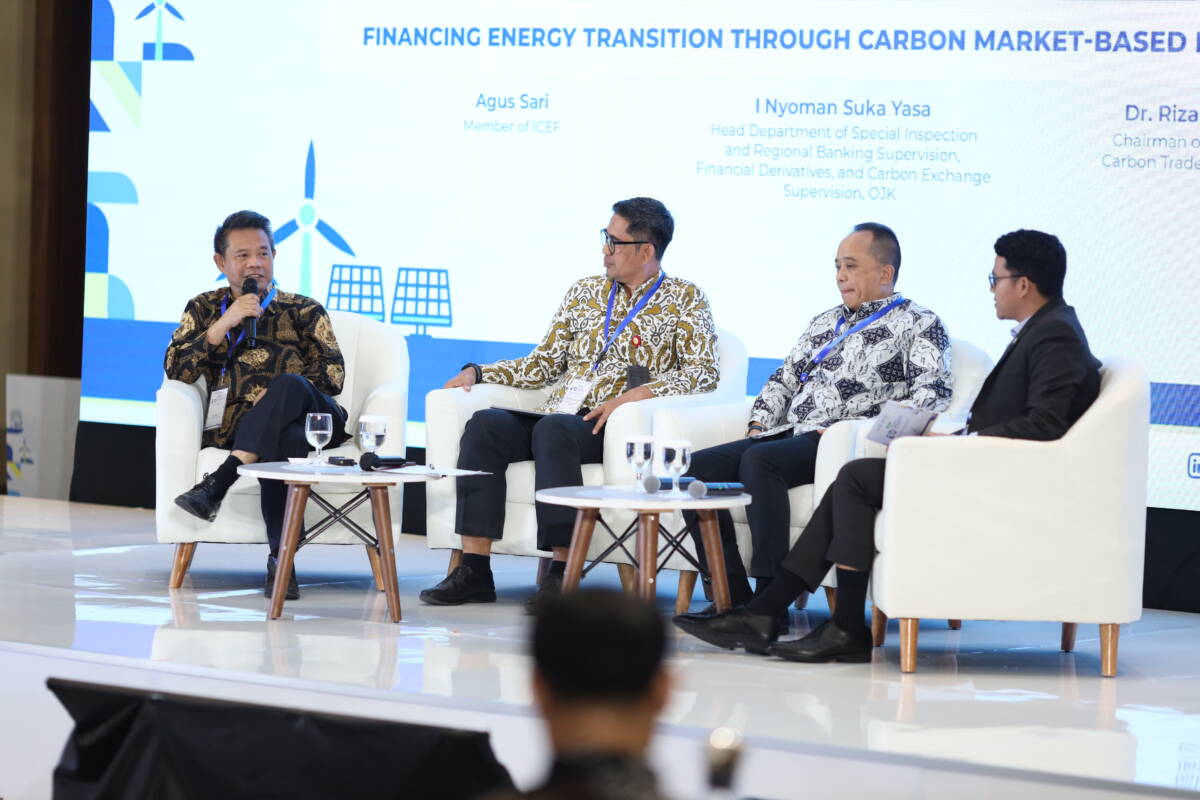Jakarta, October 31, 2025 – Indonesia launched a carbon exchange in 2023 and conducted early-stage carbon trading trials from 2023 to 2025. The initial phase focused on strengthening the policy ecosystem and carbon trading mechanisms. In 2025, Indonesia also launched international carbon trading.
Riza Suarga, Chairman of the Indonesia Carbon Trade Association, stated that Presidential Regulation 98/2021 concerning the Implementation of Carbon Economic Value still has several weaknesses, primarily related to the voluntary market scheme, which does not specifically regulate the parties required to participate in carbon trading activities.
“Hopefully, the revision of Presidential Regulation 98/2021 can be realized. Currently, this gap is being filled through the Measurement, Reporting, and Evaluation (MRE) mechanism and the recognition of five international standards: Verra, Gold Standard, GCC, Plan Vivo, and Pure Earth. What is clear is that the process of strengthening this mechanism is currently underway. Hopefully, this will accelerate the achievement of the NDC targets while increasing the potential for national income,” said Riza.
I Nyoman Sukayasa, Head of the Department of Special Inspection, Financial Supervision of Derivatives, Carbon Exchanges, and Securities Transactions at the Financial Services Authority (OJK), observed that the government has addressed sustainable finance issues in the capital market, including through sustainability disclosure, the issuance of green sukuk (Islamic bonds), and carbon trading initiatives.
“The total value of Indonesia’s carbon exchange transactions may not be significant at present, but the growth is very promising and still has the potential for continued growth,” said Nyoman.
Agus Sari, CEO of Lanskap and a member of the Indonesia Clean Energy Forum (ICEF), explained that the carbon market-based mechanism can be used as a strategy for the early retirement of coal-fired power plants.
“If we only use conventional schemes, closing coal-fired power plants is a money-losing business. Therefore, additional mechanisms are needed to provide incentives to the government and IPPs to accelerate their closures,” said Agus Sari.
Earlier retirement of coal-fired power plants means preventing emissions from being released into the atmosphere. Per gigawatt of coal-fired power plants, we can avoid 20-25 million tons of CO2.
The comprehensive recommendations from the Indonesia Energy Transition Dialogue (IETD) 2025, organized by the Institute for Essential Services Reform (IESR) and the Indonesia Clean Energy Forum (ICEF) and supported by the British Embassy Jakarta through the Green Energy Transition Indonesia (GETI) project, can be accessed at the link IETD 2025: Three Key Recommendations for Achieving an Impactful Energy Transition – IESR

